|
Educational programs within schools are brimming with projects and initiatives designed to revolutionize teaching methods for students. However, more often than not, these endeavors translate into burdensome tasks for teachers and uninspiring activities for students. The challenge lies in transforming projects into enjoyable and motivating experiences for students while maintaining efficiency for teachers. With this question in mind, the new edition of the course “Introducing Project Based Learning in the Classroom” took place in Bologna from 21/02/2024 - 27/01/2024. The participants came from all across Europe, with Maria Fernanda Palhares Leite Moreira and Margarida Silva Barroso from Agrupamento de Escolas de Pinheiro in Portugal, Monica Göransson Lööf from Hjalmar Strömer School in Sweden, Lara Mendieta Montoro and Valeria Moreno Parredo from Gregori Mayans in Spain, Pantazi Marinela and Coman Carmen from ,,Constantin Brancoveanu" Techonological High School in Romania, Inmaculada Concepción Cepedello Dovao and Ana María Orozco Giménez from IES Politécnico Jesús Marín in Spain, Teodora Yordanova, Martina Doycheva and Darina Pachova from 112 Primary School "Stoyan Zaimov" in Bulgaria, Jana Rychtaříková from Gymnázium, Mladá Boleslav, Palackého 191/1 in Czech and Ellinor Hallgren and Johanna Borgggren from Turebergsskolan in Sweden. In the initial phase of the course, participants delved into the fundamental concepts of Project Based Learning (PBL). Focusing on the 5 key elements of PBL, they utilized case study videos to illuminate these elements within presented projects. Spontaneously, a realization arrised – PBL is not just another project; it is a distinct teaching approach complete with its own set of rules and methodologies. From this revelation, the course progressed to deconstructing the preparation of a PBL project into distinct phases:
Class Preparation for Project Based Learning: Teachers underwent self-reflection and collaborative discussions, recognizing the significance of instilling key skills and attitudes in students for PBL success—curiosity, critical thinking, inquiry, and collaborative spirit. Definition of Learning Outcomes and "Backward Designing": Crucially, PBL should be intricately connected to the curriculum, avoiding the pitfall of being perceived as mere additional work tacked onto the end of a unit. Formulation of the Driving Question and Project Details: At the core of PBL is the "Driving Question," acting as the catalyst for student learning. By seeking solutions to challenges or problems posed in this question, students engage in research and inquiry, uncovering major concepts within the involved disciplines. Establishment of Appropriate Assessment Forms: Participants grappled with the challenge of evaluating individual student progress within a group context. The course addressed this by distinguishing between formative and summative assessments, emphasizing the significance of the former in evaluating progress and performance. Integration of ICT Tools in Support of Project Based Learning: Acknowledging the indispensable role of technology in PBL, participants actively practiced essential tools facilitating the seamless and efficient implementation of PBL in the classroom. The efficacy of the learning experience for participants stemmed from the opportunity to collaboratively create their own projects throughout the week. Each day, as a new facet of PBL implementation unfolded, groups engaged in designing projects tailored to their students' age group. This not only clarified any lingering doubts but also provided a platform for brainstorming and cross-cultural collaboration. The culmination of this endeavor instilled a positive sense of achievement and a personal commitment to implementing the projects in their respective classrooms. Discover more about this course here. Did you realize that play is seen as a vital aspect of cognitive growth from infancy to adulthood? Reflect on your beloved games: isn't it accurate that you never tire of playing them? Whether it's hide and seek, puzzles, building sets, or board games, there are unseen connections weaving our memories, experiences, and emotions tied to playing. These connections are all rooted in the innate motivation and involvement they spark in our minds! The new edition of the course “Discover the power of Game Based Learning and Gamification in education” took place in Bologna from 21/01/2024 to 27/01/2024. The participants came from all across Europe, with Stefan, Ruja, Diana and Christian from Bayerischer Volkshochschulverband e.V., Adina and Cataina from Public Kindergarten no.1. During the initial session of the course, we delved into the evolving dynamics of generations, exploring how they have transformed over time. We also examined how the landscape of popular toys has shifted across different generations, reflecting societal changes and technological advancements, but also the continued engagement to playful experiences. Furthermore, we engaged in a reflective dialogue on the pedagogical significance of play, recognizing its profound impact on cognitive development and learning processes. This initial discussion set the stage for a deeper exploration of these themes throughout the course. We introduced participants to the Gamer Starter Pack, where we delved into meaningful experiences within the gaming environment. Through this examination, we discussed the potential applications of these experiences in educational settings. As the main outcome of the second level, we defined the most common gamification framework as the process through which 8 major internal and external motivators influence human engagement. During one of the practical activities, players engaged in a role-play where they acted like the most common types of video games players, reaching a hands-on understanding of game-driven motivation. 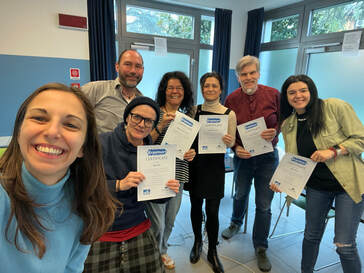 In the final stages of the training course, we lived the most active and engaging experiences. We went outside to enjoy a scavenger hunt game in the city center and were locked in a digital escape room trying to solve riddles and puzzles to escape. This not only was the foundation for participants to discover the best and easiest tools to create a personalized digital escape room for their students but also gave the group a common challenge and purpose. Indeed, as a heartwarming gesture, they gifted the trainer with the most beautiful present imaginable: a personally designed escape room, tailored to her interests. This thoughtful gift underscored the profound impact of our shared experiences and highlighted the creative synergy fostered within the group thanks to the playful design. Having overcome all the levels of our game, participants had the opportunity to learn new ways of making the most of the most traditional games to transform the learning process. They also got acquainted with modern online tools able to produce a significant improvement of students’ engagement and bring a spark in the classroom! Discover more about this course here. Engaging with the outdoor has a significant positive influence on human cognitive, behavioural and emotional growth since ancient times: even today it is common to feel awed or impacted by spending time in nature or observing natural as well as urban sceneries. Outdoor education represents a pioneering educational method that tackles two critical issues in modern society: firstly delivering enduring top-notch education and secondly fostering an understanding of the urgent need to conserve our planet amidst the looming challenge of climate change. The latest edition of the course titled "Outdoor education: a new way of teaching and learning" was held in Tenerife from 21/01/2024 to 27/01/2024: participants hailed from different European countries, with Kristers and Mārtiņš from Babite Secondary school, Maciej from Zespol Szkolno Przedszkolny in Zagórze. Commencing with the definition of Outdoor education, we investigated the various methods available for facilitating student interaction with the outdoor, which does not necessarily mean always being in natural settings, such as forests: notably, a part of the training was devoted to Urban outdoor education within the city. At the beginning participants gained proficiency in teaching subjects such as science, mathematics, music, art, language and others by experimenting with activities designed to direct their focus towards their immediate surroundings. Another part of the course emphasised the utilisation of a large number of tools in natural environment within local parks: as a matter of fact the games and activities that were tested garnered high appreciation and served as a source of inspiration for participants in sharing their activities with the rest of the group as well as in devising their own outdoor activities. Participants also delved into the principles of Non-formal education (NFE), namely a pedagogical approach that places various concrete outdoor activities, which were encountered while engaging in activities or tasks, at the heart of the learning process. Consequently, by guiding students through the complete cycle and ensuring we pose the appropriate reflective questions, they have the opportunity to relate the new knowledge they acquire to their lives and effectively apply it. The final part of the course was dedicated to customising an outdoor experience tailored to the target group of each participant: so they culminated their learning journey by crafting an outdoor lesson on the subject taught following an exploration of the principles of outdoor learning, an understanding of the significance of 10 Kurt Hahn rules and engagement with urban and natural activities. Towards the end of the week, considering the age level of their students as well as the skills and topics they wished to address, each educator meticulously planned the session, then they presented their plan to fellow participants, receiving feedback on areas for improvement. These days served as a tangible demonstration of the effectiveness of experiential outdoor learning: through hands-on method participants gained firsthand insight into what an outdoor education activity entails and acquired the necessary knowledge to orchestrate one for their pupils. In conclusion, there is no doubt that throughout this course participants had the opportunity to delve into an extensive array of activities and games that they can reproduce with their students, underscoring the idea that learning extends beyond the confines of a classroom! Explore further details about this course here. The course emphasized the importance of keeping classrooms motivated and engaged in language learning by incorporating digital tools. Participants learned to leverage various technological tools for purposes such as introducing new subjects, personalizing lessons, and challenging students to create their own work to stimulate creativity. The new edition of the course “Teaching languages in the digital era: the best apps, web platforms and ICT solutions for learning languages and Integrating ICT and new technologies into teaching and education” took place in Bologna from 14/01/2024 - 20/01/2024. The participants came from all across Europe, with Nathalie Goodenough from Oniris in France, Bernarda Hvala from Vrtec Ledina in Slovenia, Eduardo Gutiérrez Gómez, María del Cristo Díaz Rodríguez from CEPA GUAYAFANTA in Spain. Throughout the week, educators explored a vast range of technological tools and discovered practical ways to integrate them into their teaching methods. These tools not only fostered engagement and motivation but also facilitated progress monitoring in areas such as vocabulary learning, communication, and individual work. Participants actively engaged in practical activities, including live quizzes and the creation of interactive language quizzes using web applications. The incorporation of tools like quiz flashcards proved effective in enhancing students' vocabulary and spelling skills. The course also introduced web platforms dedicated to creating presentations about languages, allowing participants to create and present their work in a motivating environment. Additionally, educators learned about tools for outlining lesson contents, preparing grammar presentations, posing questions, and monitoring students' attention in the classroom – crucial skills, especially in the context of prevalent distance learning. Specific platforms enabling the addition of voice notes, questions, and voiceovers to educational videos were explored, providing opportunities to turn videos into interactive lessons. Furthermore, participants delved into tools for editing pictures and videos, enhancing their ability to create multimedia content and engage students in various ways. The course also addressed the shift towards virtual education, covering applications for online classes, virtual whiteboards, and collaborative learning experiences. Practical activities such as presentations, virtual quizzes, and creating engaging social media content enriched participants' technological expertise. By the end of the course, educators left with not only a newfound understanding of interactive learning but also a toolkit ready to be applied in their classrooms. This approach is poised to enhance creativity, engagement, attention, and motivation among students, transforming language learning into a dynamic and enjoyable experience! Discover more about this course here. |
Welcome to the ELA Blog. Here you will find articles and photos of our courses and have a look at the topics addressed during the week in Bologna, Palermo and Tenerife. You will also have the chance to take a peek at our projects and check out what we have been up to.
Archives
July 2024
Categories |
-
Course catalogue
- 2023-2024 course catalogue
- Soft Skills >
- ICT and New Technologies >
- Inclusion and Diversity >
-
Innovative Teaching Methods
>
- Innovative teaching methods discovery
- Non-formal education teaching methods
- Dual education and work-based learning
- Teaching leadership and entrepreneurship
- Project based learning
- Game based learning and gamification
- Green skills
- Outdoor education
- Outdoor education trekking edition
- Promoting creativity and critical thinking
- Languages and EU projects >
- Preschool >
- Erasmus Plus KA1
- What we do
- About us
- Locations
- Blog
- Contact us
 English
English български
български Čeština
Čeština Español
Español Français
Français ελληνικά
ελληνικά Italiano
Italiano Polski
Polski Português
Português Română
Română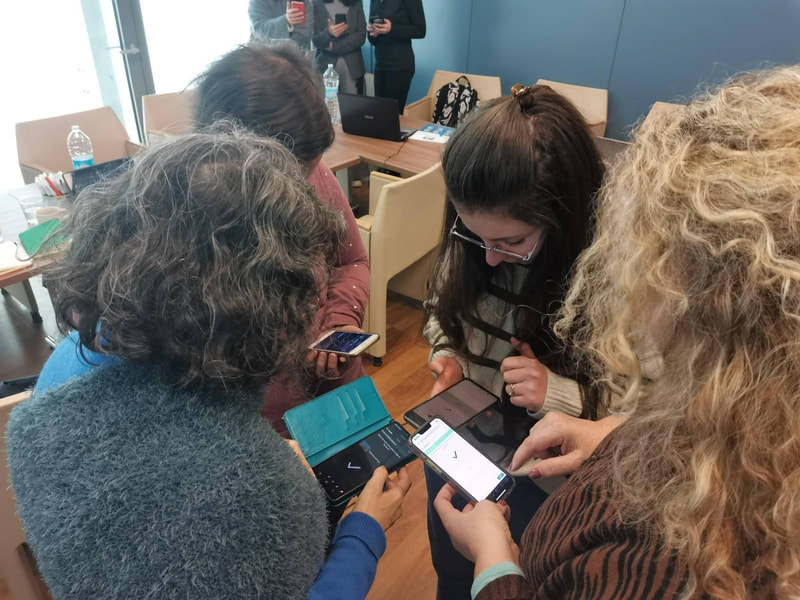
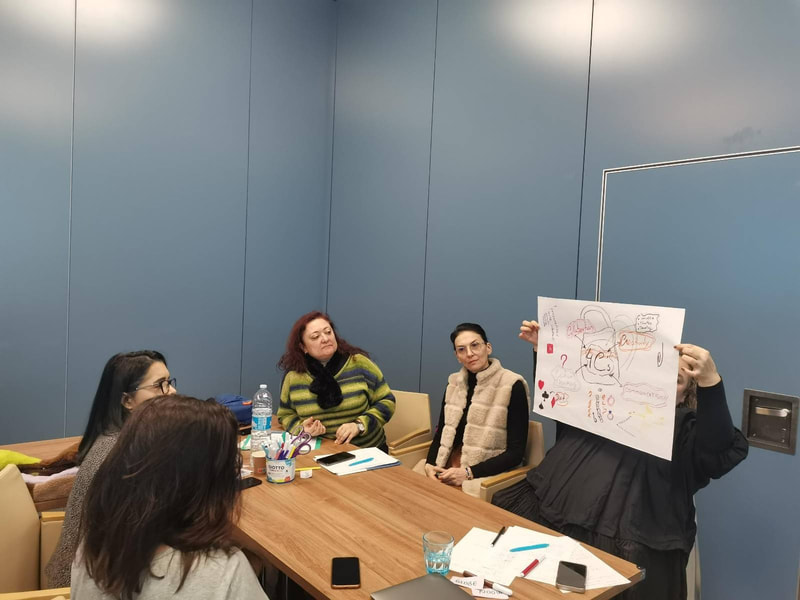
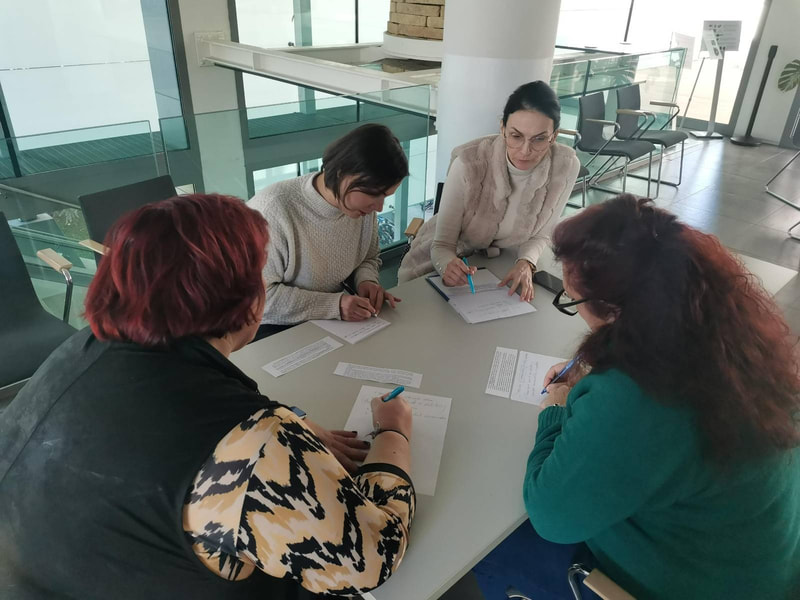
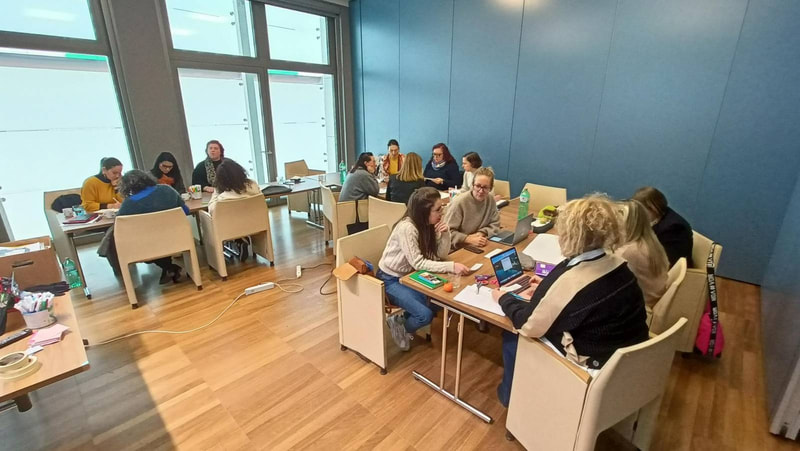
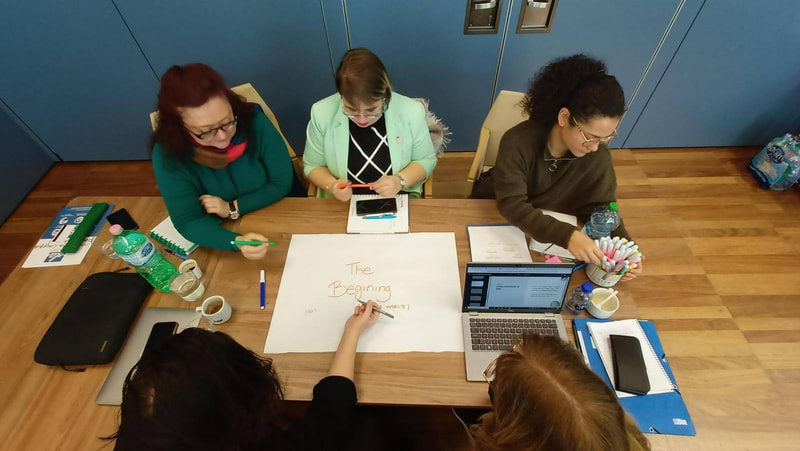
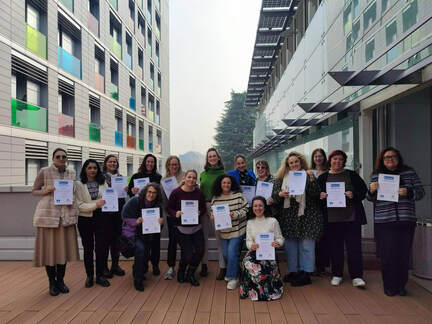
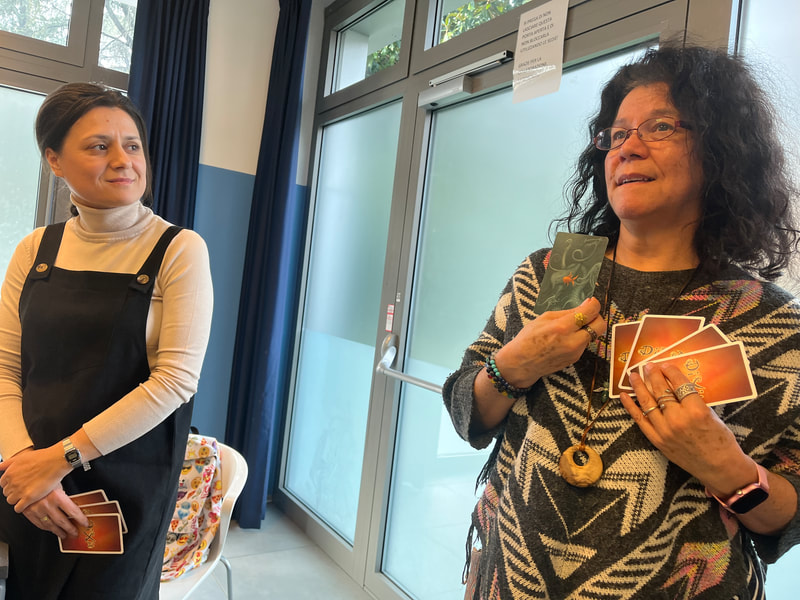
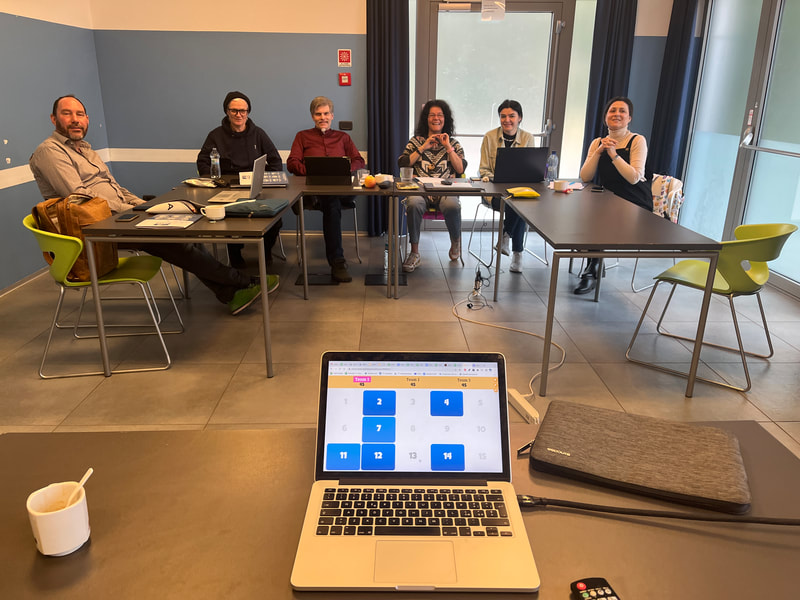
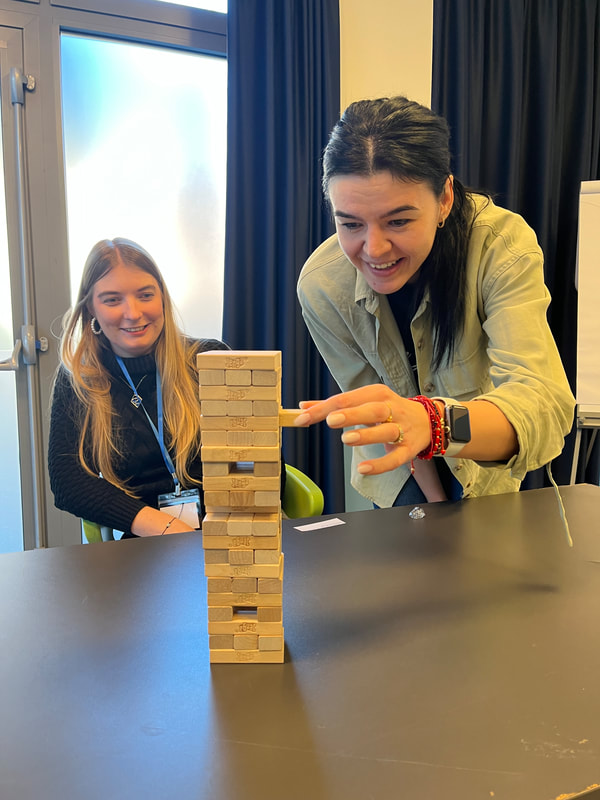
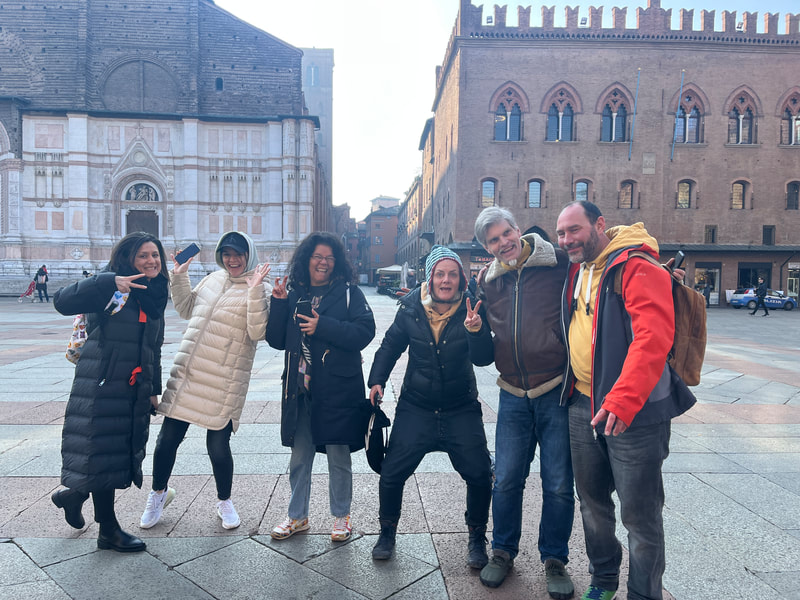
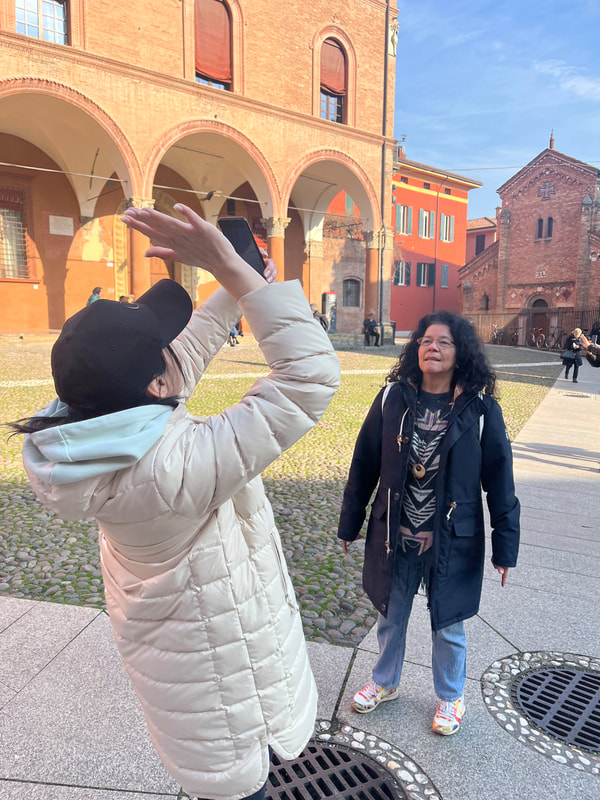
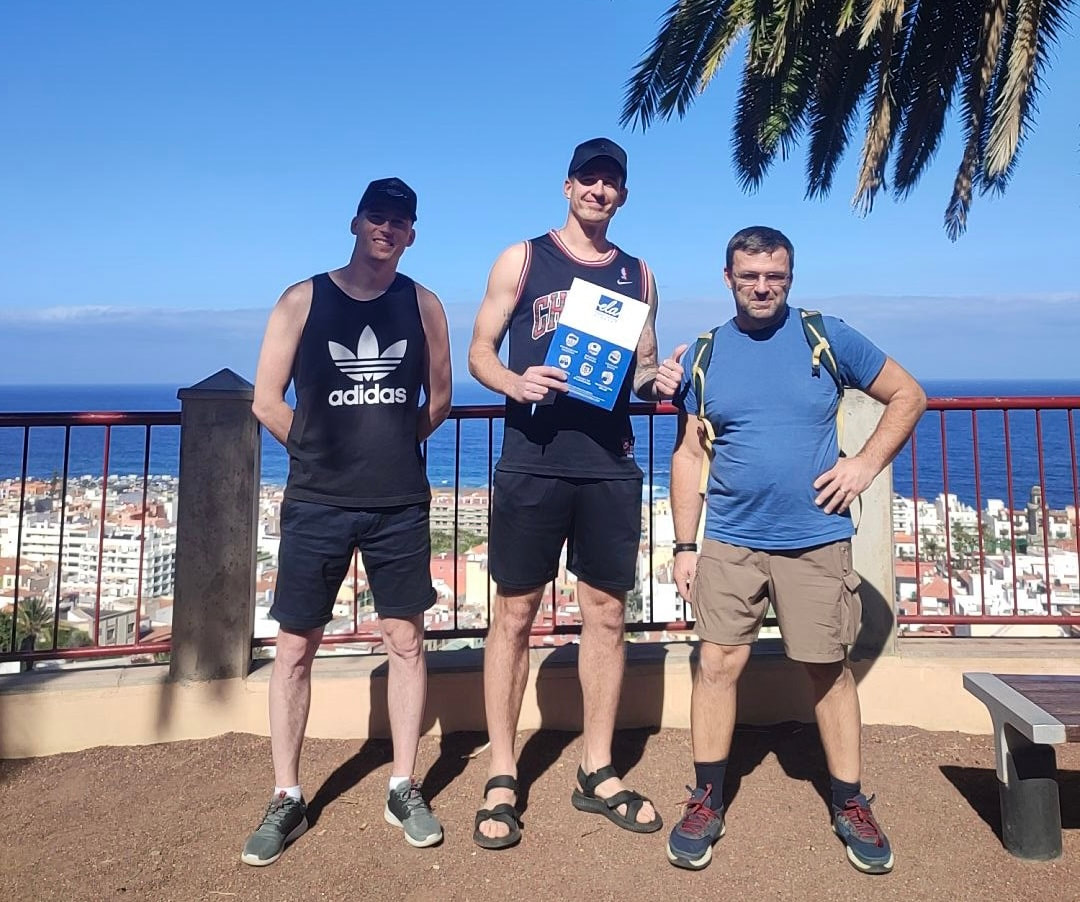
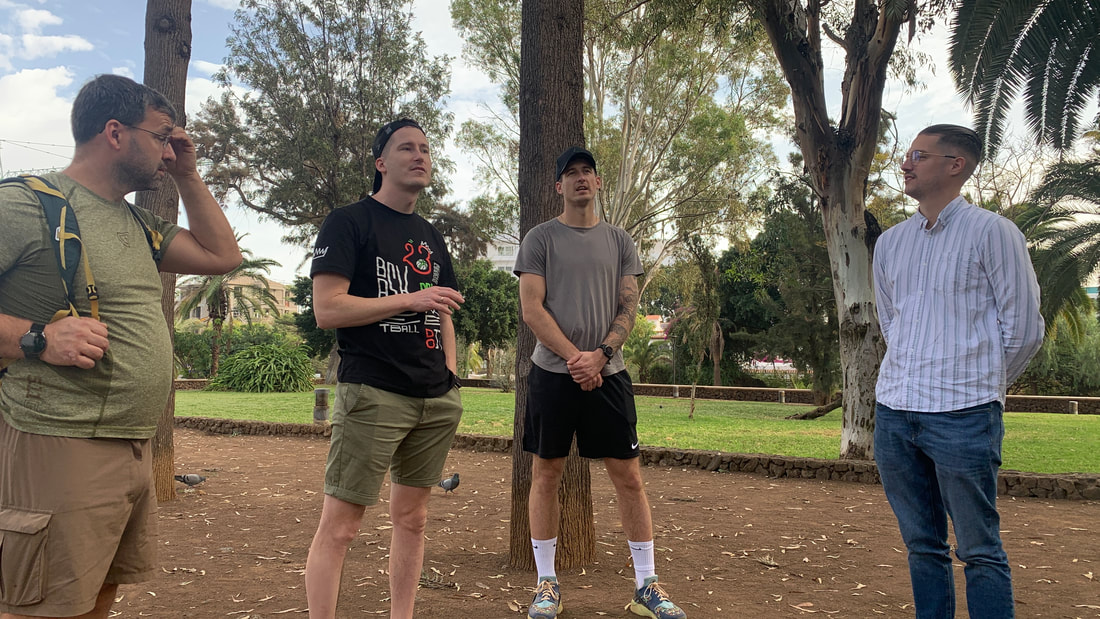
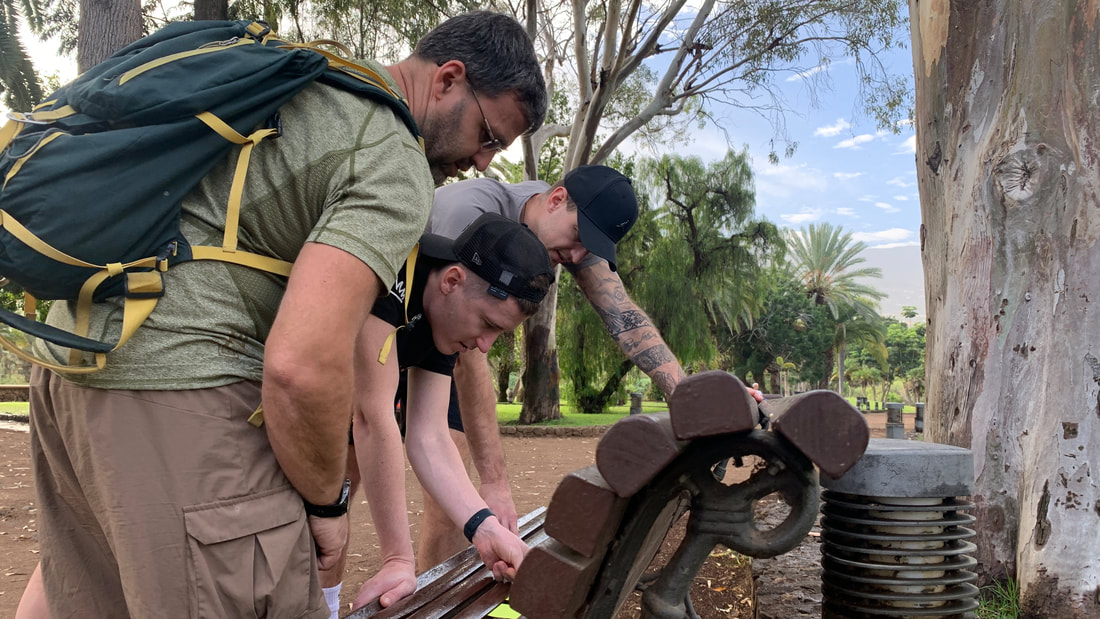
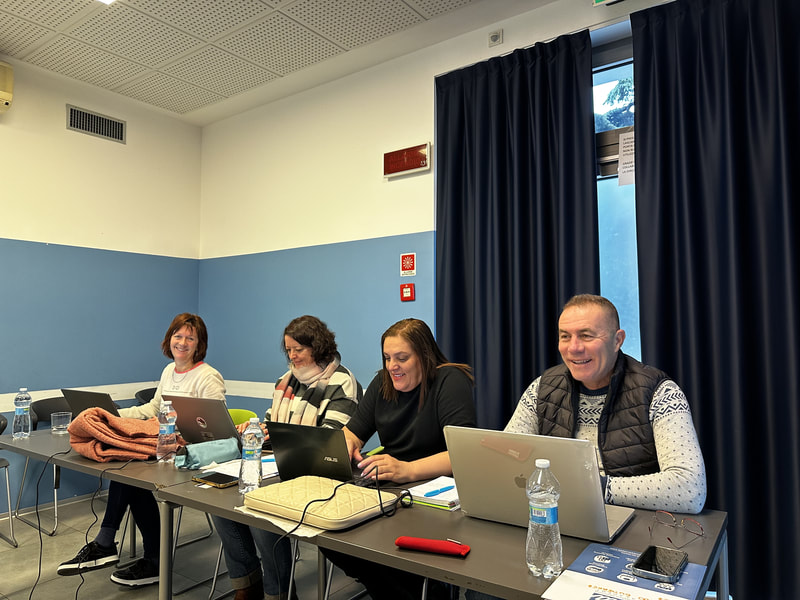
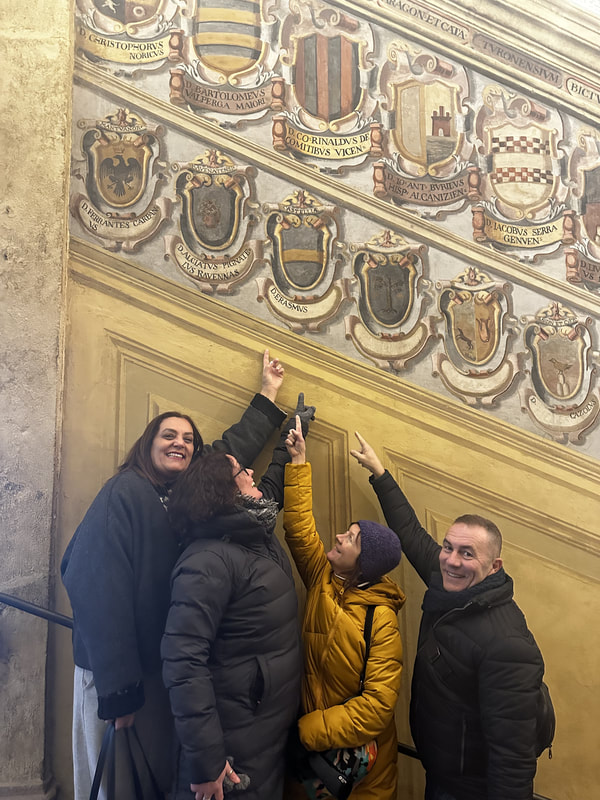
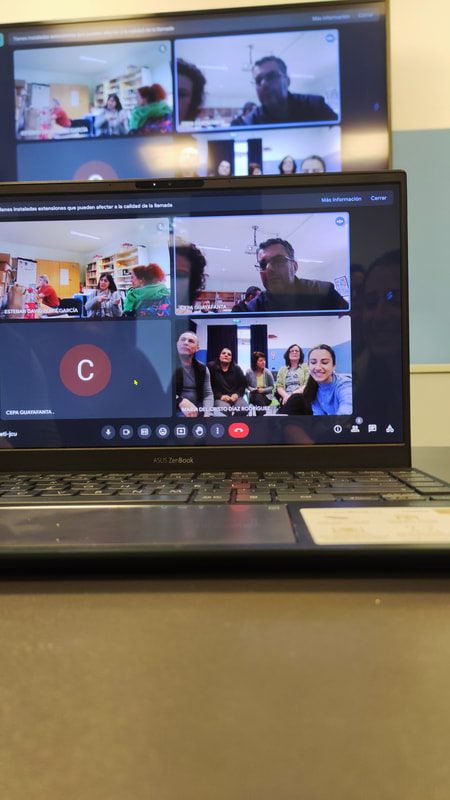
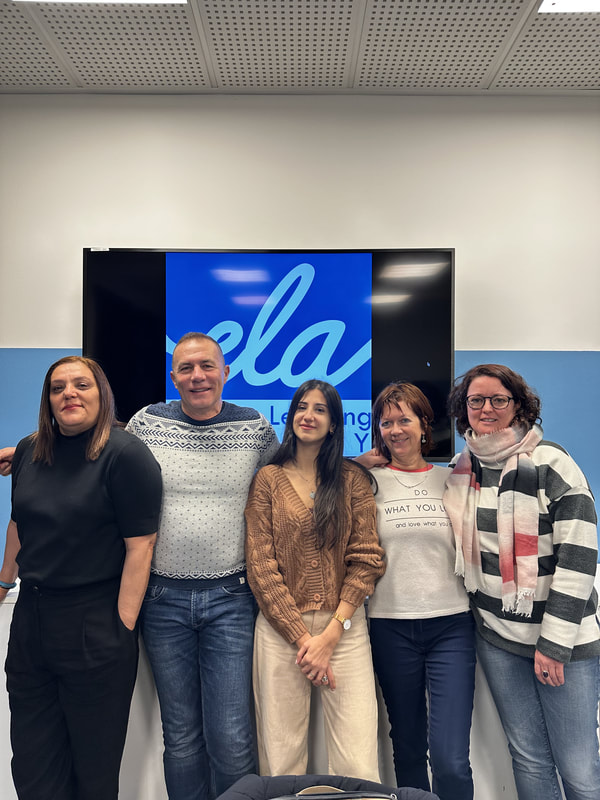
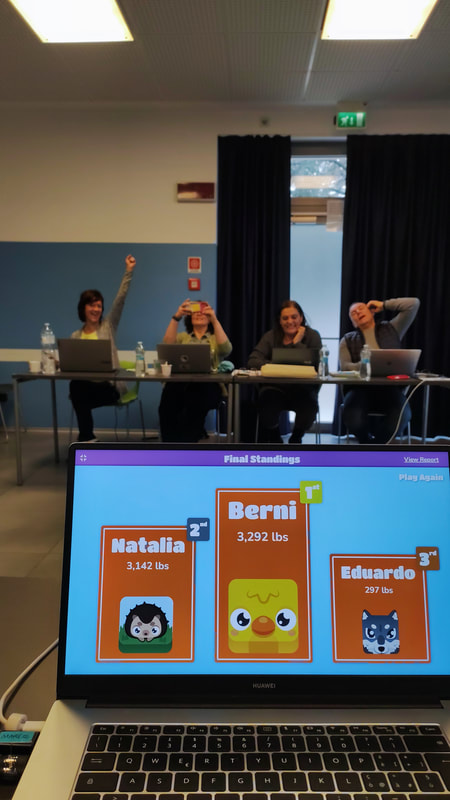
 RSS Feed
RSS Feed









